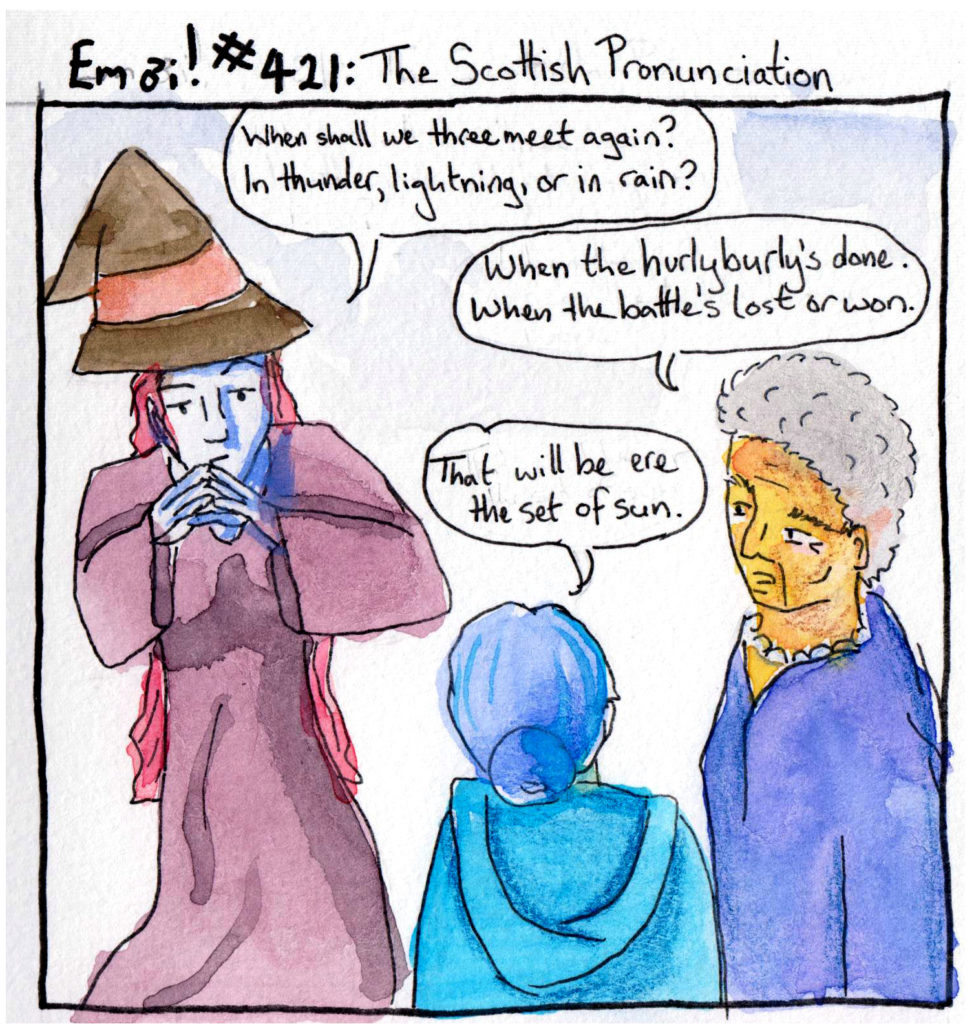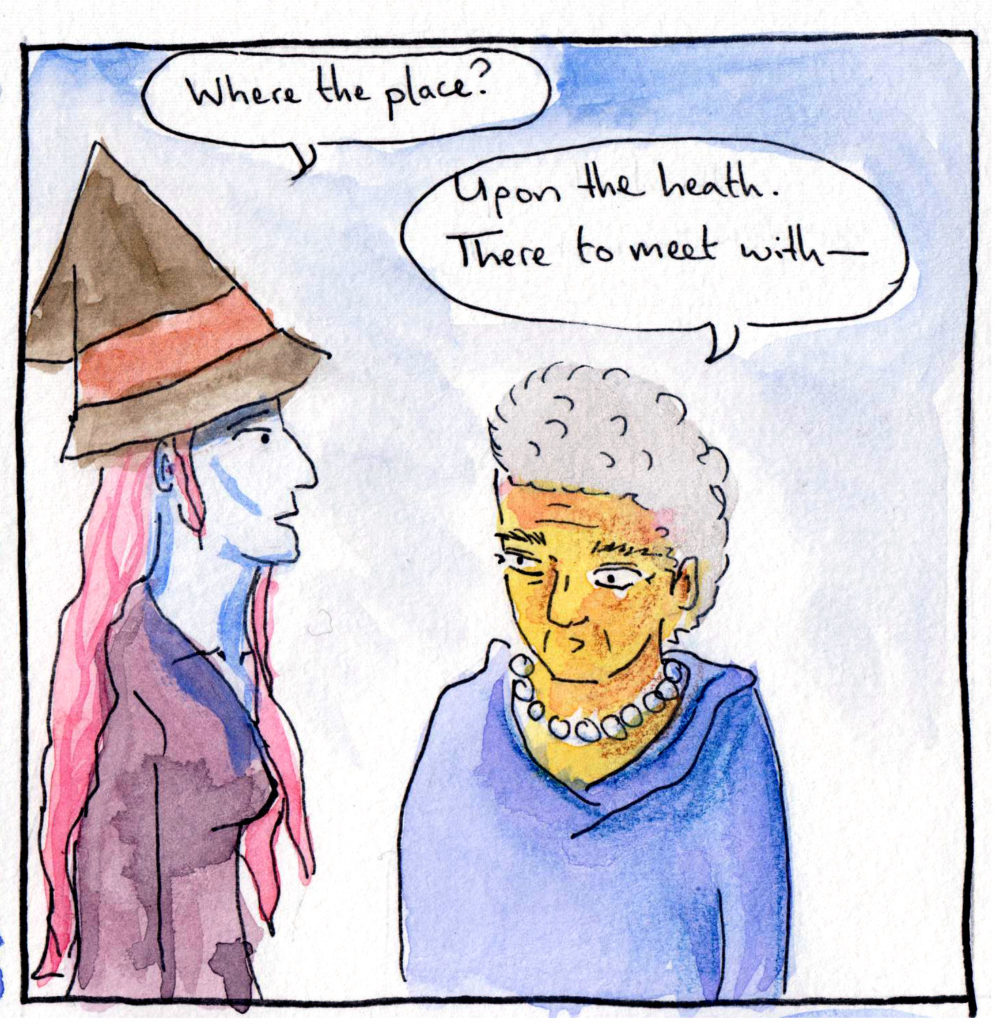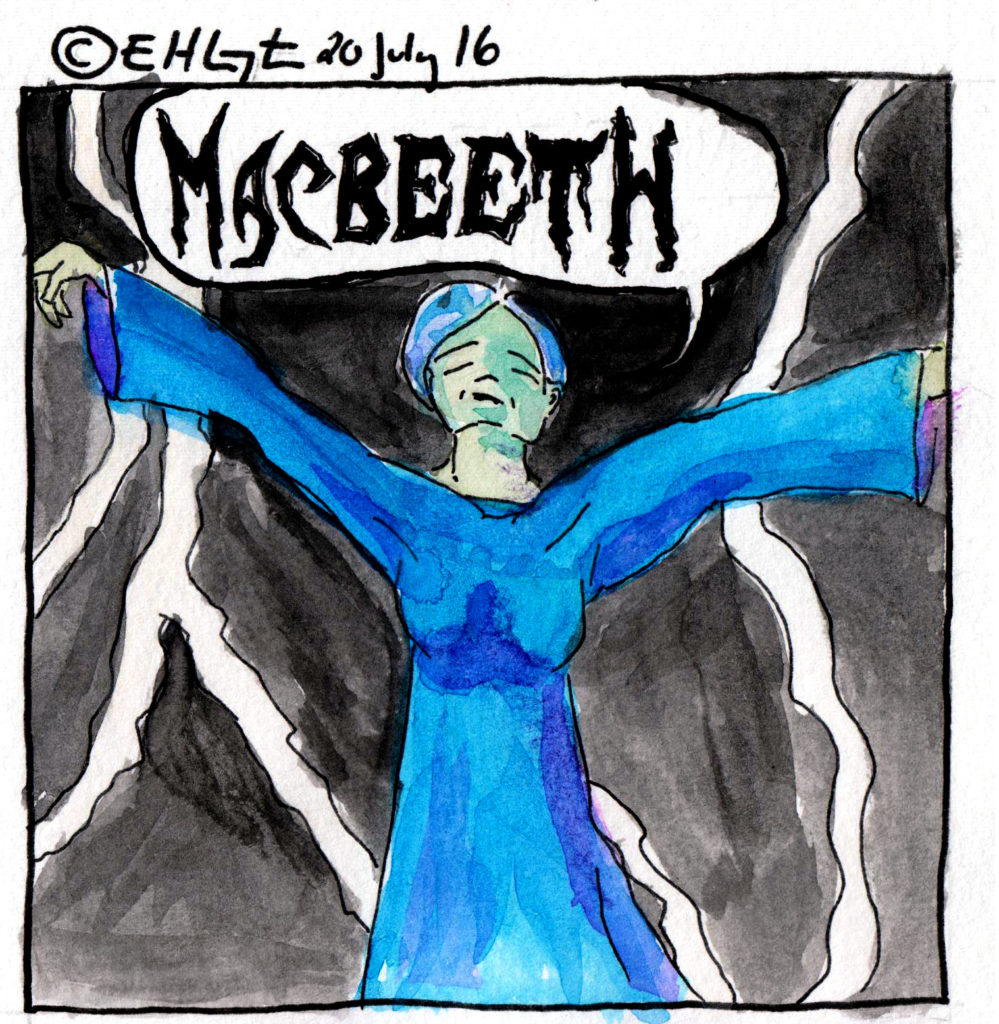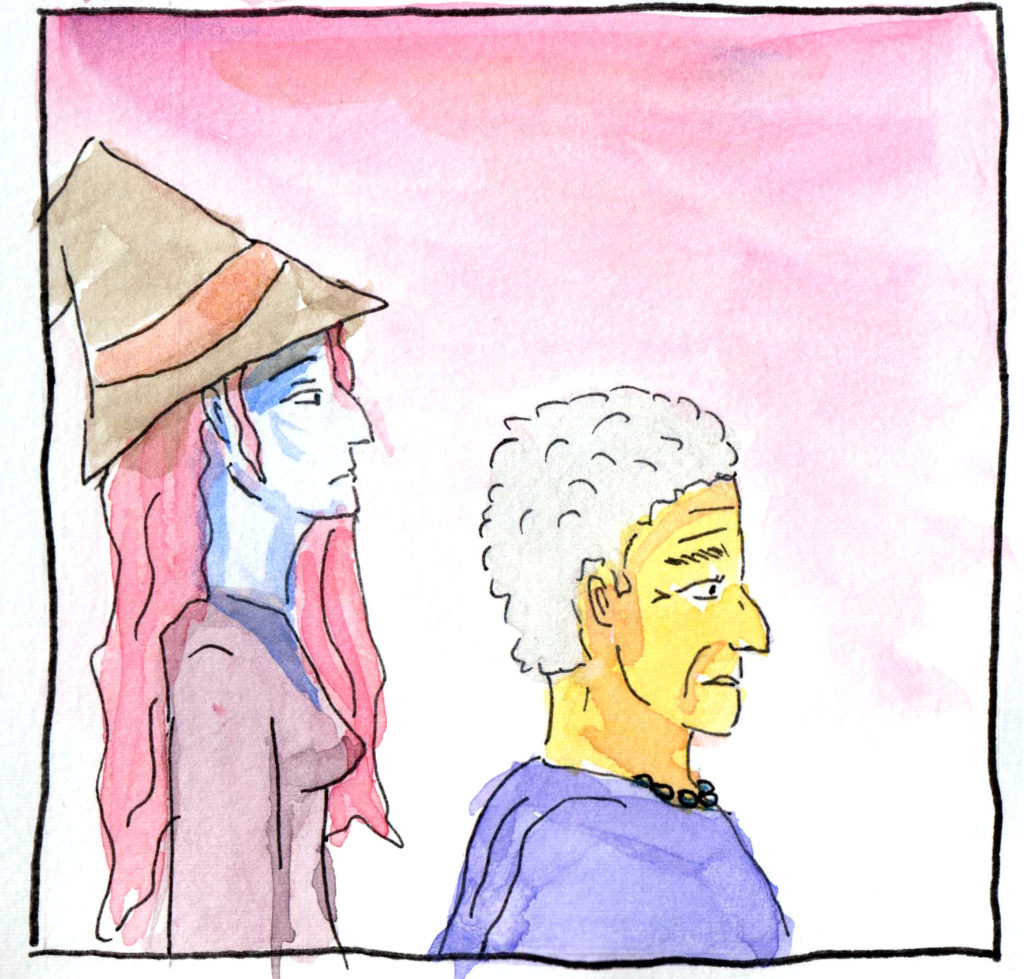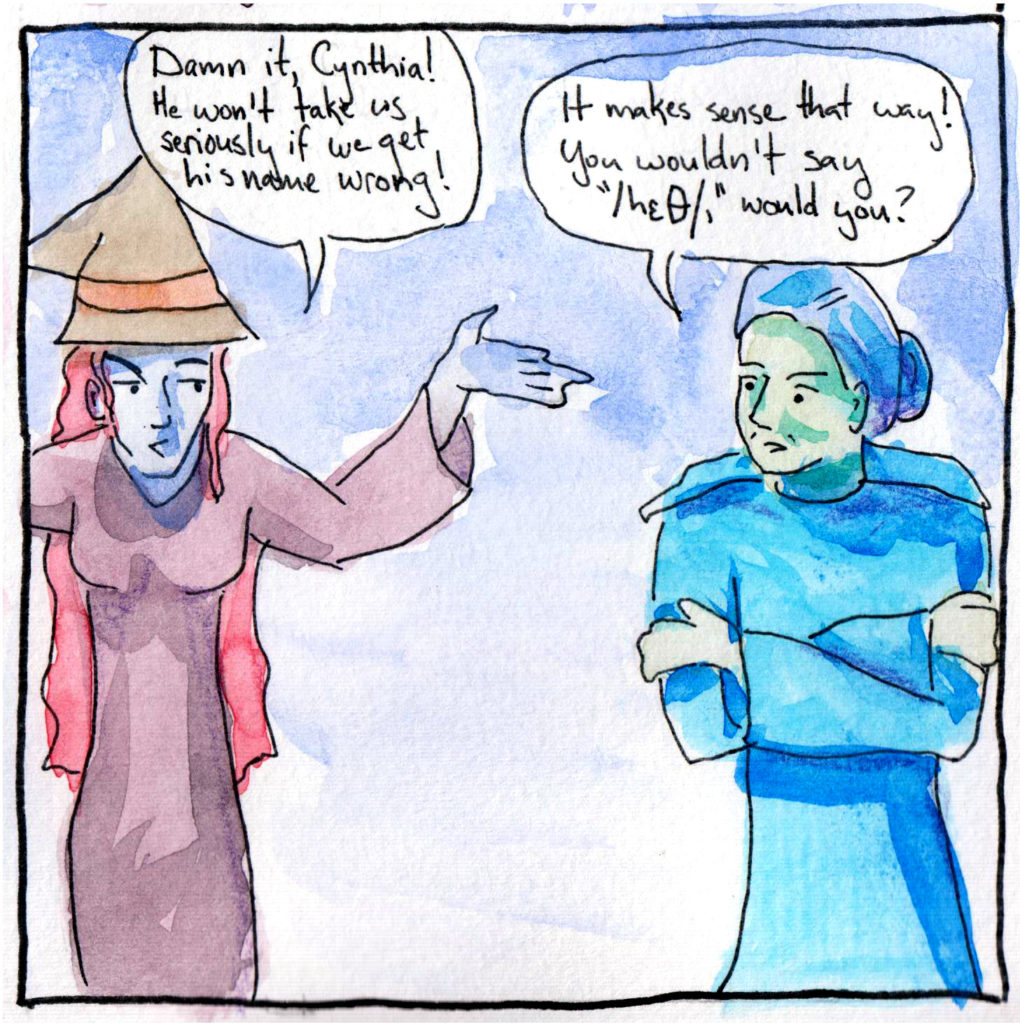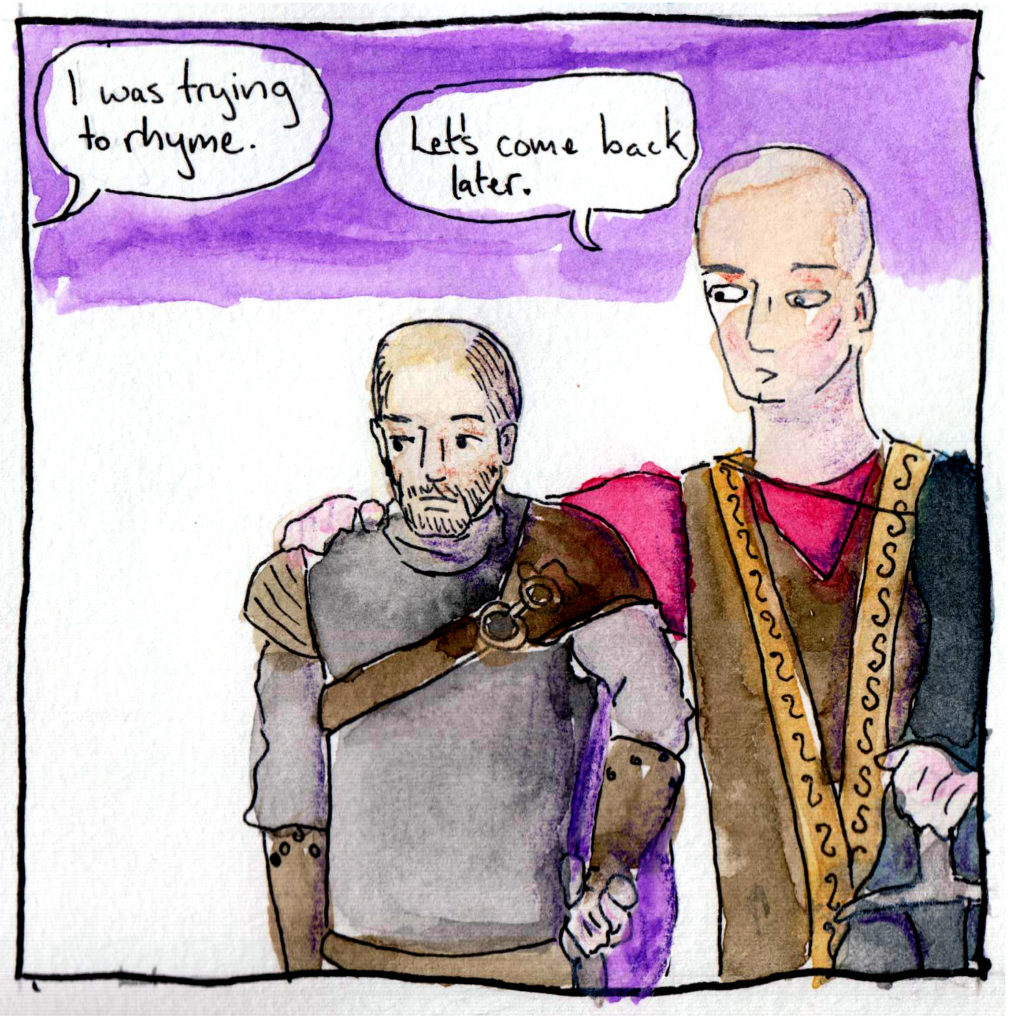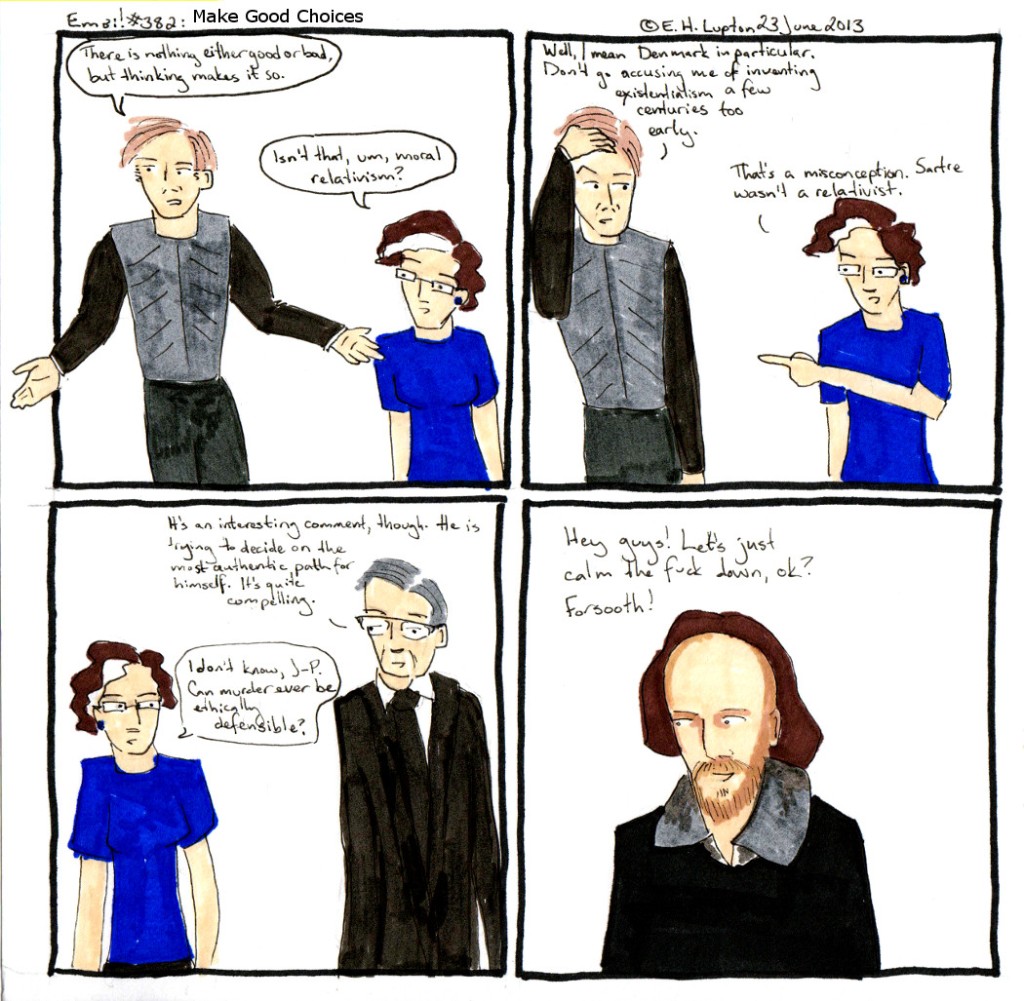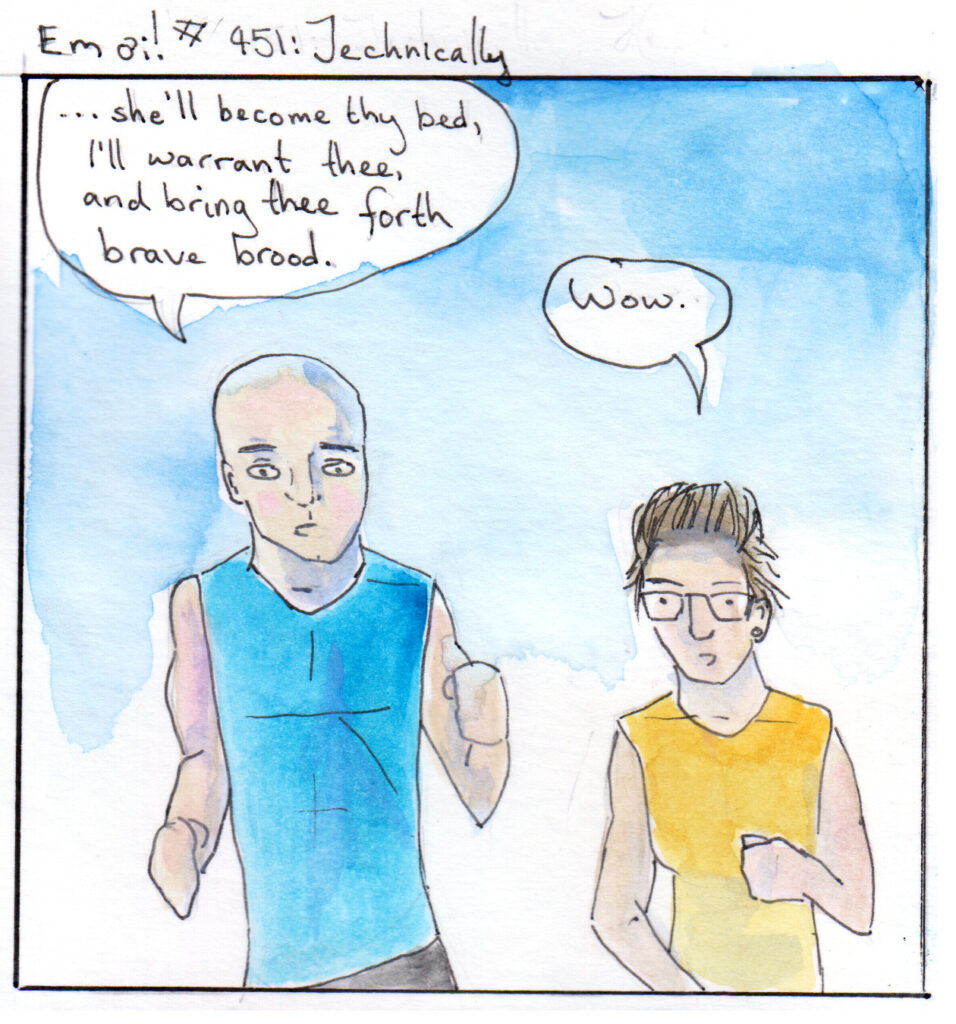
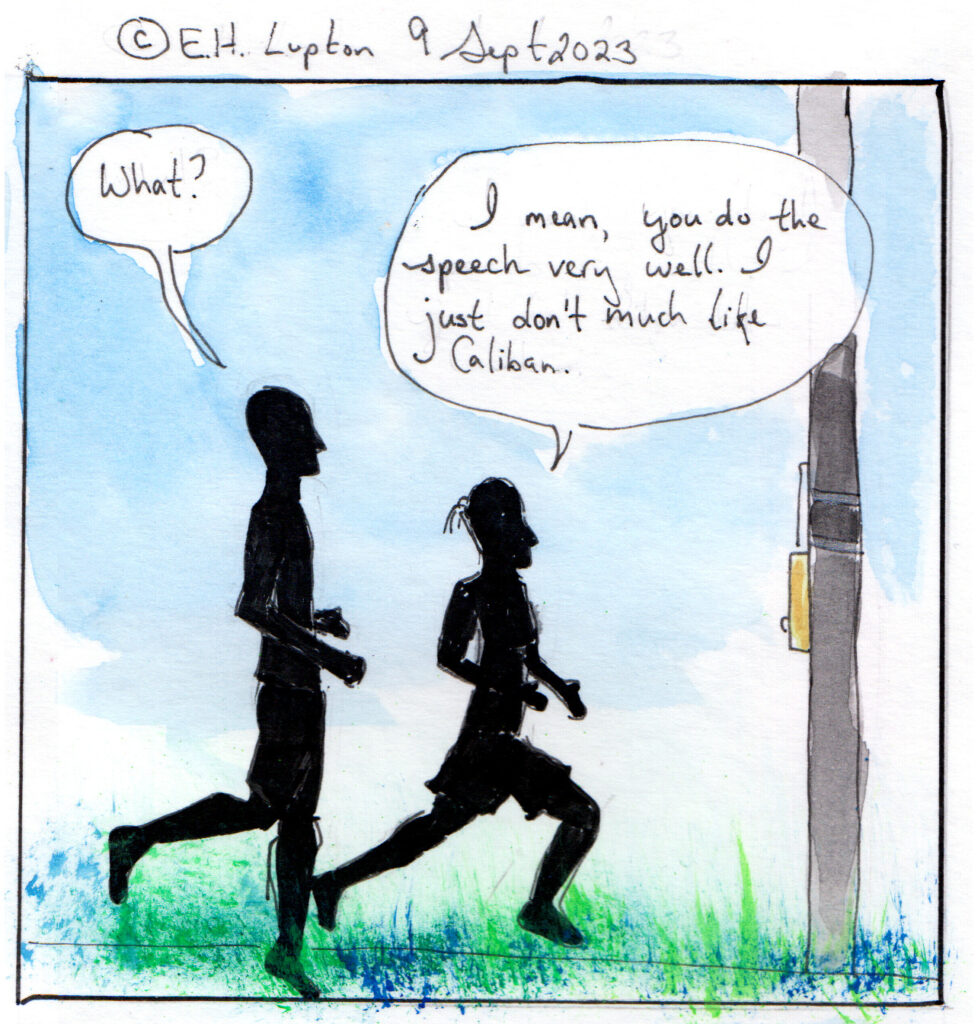
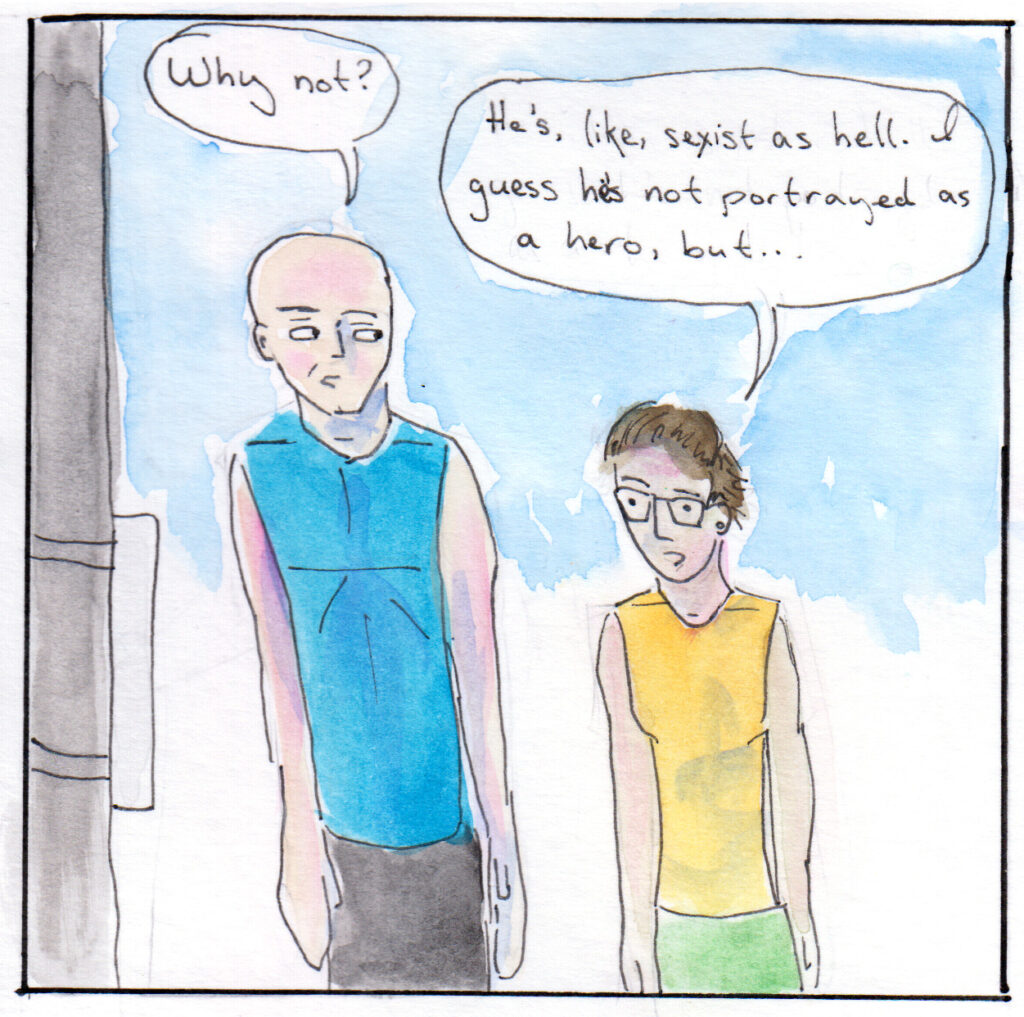
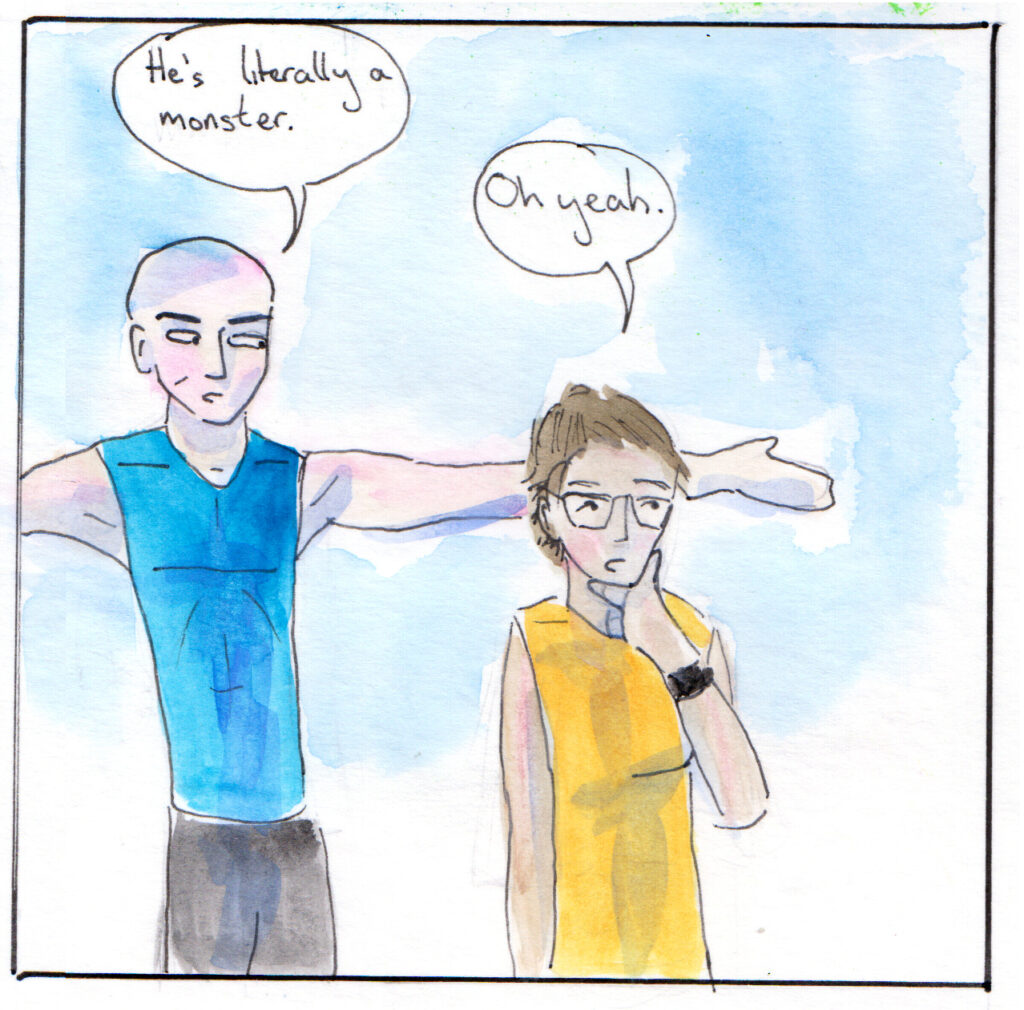
Back before we had many small children, when he had time for community theater, B used to recite the speeches he was working on while we went running together. That was always fine when he was doing something fun (Twelfth Night) and always a little weird when he was doing a villain (Aaron the Moor from Titus Andronicus has a very good one[1]). Now we’re back to doing this because he has a show next Saturday (9/23, here in Madison)–and he’s learning a scene from The Tempest. Which is a great scene, but also interesting to be doing excerpts from in public. (Also, when we actually had this conversation, we were on dreadmills at the gym, so. But it’s a hell of a scene.)
All right, announcements.
I had a poem in the August/September issue of Utopia Science Fiction Magazine. The poem is called “Anxiety #243,” and you can buy a copy of the issue here. If you just want to read the poem, you should sign up for my newsletter and then check out the most recent back issue. I have another poem coming out in the next couple of weeks, and you should definitely sign up for my newsletter if you want to be notified!
I will be reading at Rainbow Space Magic Con at the end of September. I will also be appearing on a panel about writing fantasy and historical accuracy w/r/t the middle ages, a topic about which I have many possibly controversial opinions. Registration is free, so go sign up. I’ll send out a newsletter with the actual schedule once I know it.
I also recently came out with a new T-shirt. It looks like this:
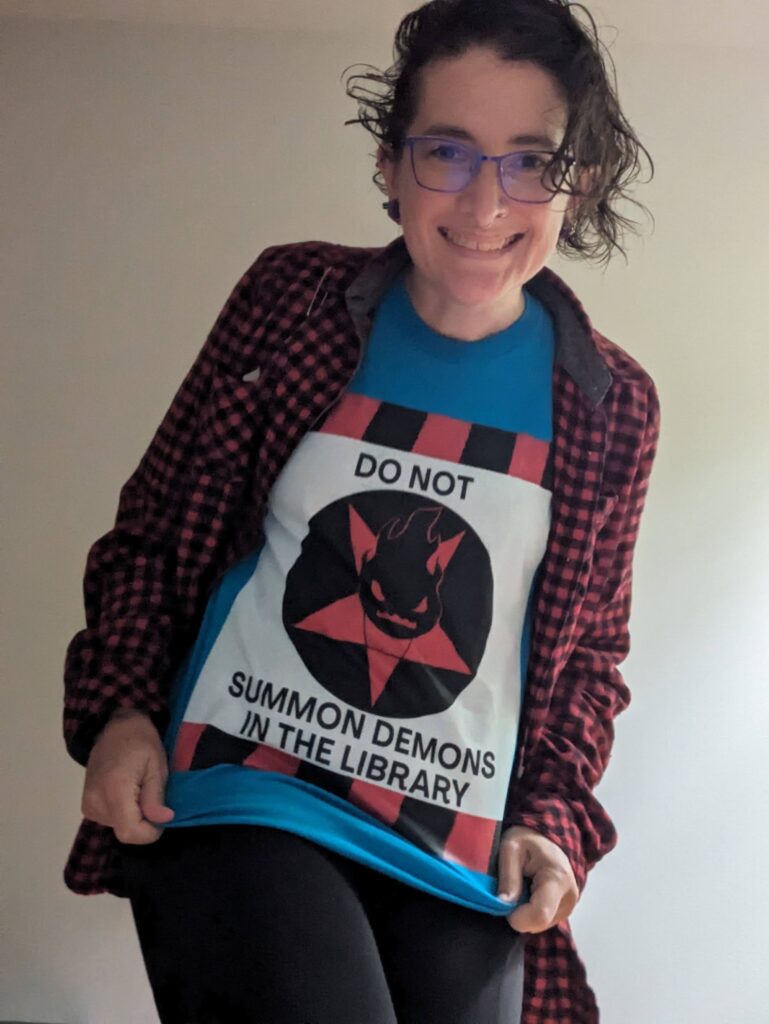
Click here if you want one. There are a few color and size options (also children’s sizes, because my 6yo wanted one), and also stickers and metal signs, in case you want it in your own library.
Finally, for fans of Dionysus in Wisconsin, book two will be available for preorder in October and out in January.
We’ll file this under PR2833.W5 L86 2023, for English literature–English renaissance (1500-1640)–The Tempest–Criticism. (I’m not 100% sure about that W5–I don’t have access to that table anymore, but I used it last time I did a comic about Shakespeare, so I am guessing it means “Criticism.”)
Footnotes:
[1] From act 5, scene 1:
Lucius:
Art thou not sorry for these heinous deeds?Aaron:
Ay, that I had not done a thousand more.
Even now I curse the day—and yet, I think,
Few come within the compass of my curse—
Wherein I did not some notorious ill,
As kill a man, or else devise his death;
Ravish a maid or plot the way to do it;
Accuse some innocent and forswear myself;
Set deadly enmity between two friends;
Make poor men’s cattle break their necks;
Set fire on barns and haystalks in the night,
And bid the owners quench them with their tears.
Oft have I digged up dead men from their graves
And set them upright at their dear friends’ door,
Even when their sorrows almost was forgot,
And on their skins, as on the bark of trees,
Have with my knife carvèd in Roman letters
“Let not your sorrow die, though I am dead.”
But I have done a thousand dreadful things
As willingly as one would kill a fly,
And nothing grieves me heartily indeed
But that I cannot do ten thousand more.
It’s an amazing speech! Who doesn’t want to twirl their moustache so heartily? But you can see why we used to quiet down when we passed one of the neighbors…

